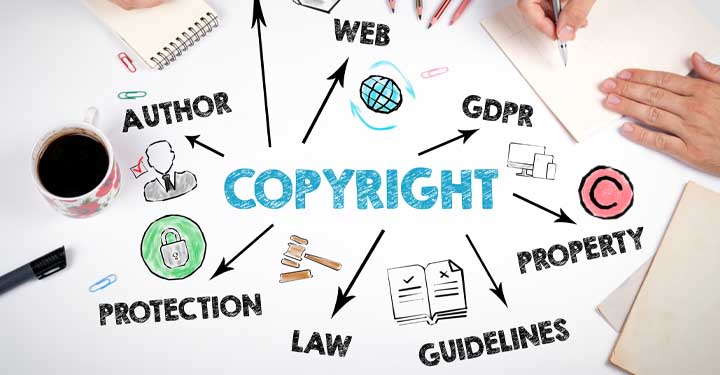Estimated reading time (in minutes)

Online Services and Copyright Infringement
Copyright safeguards The advent of online communication services has created new challenges in copyright protection. A significant problem arises when these services systematically direct Internet users to websites containing unauthorized recordings, thus facilitating the violation of the rights of performers and producers. This creates a pressing need for measures to prevent or mitigate such breaches, although full effectiveness cannot be guaranteed.
This section refers to actions taken to fight against copyright infringement in the field of online services. It encompasses the various measures and approaches implemented to mitigate the unauthorized use and distribution of copyrighted content. The focus is on finding proactive solutions that protect intellectual property rights in the digital landscape. This involves the development and application of policies, technologies and legal frameworks to combat copyright infringement, protect creators’ rights and promote a more responsible and legal online environment.
Google Suggest and copyright infringement
The case known as Google Suggest illustrates the intersection of online services and copyright infringement. The Syndicat national de l’édition phonographique, a professional advocacy organization, discovered that suggested keywords on Google could associate musical artists, album titles or songs with terms such as “torrent”, “Megaupload” or “Rapidshare”. These terms refer to protocols and websites for downloading files.
Noting the copyright infringementresulting from the content of this online service, the defense organization has requested measures to prevent or put an end to the infringement under Article L. 336-2 of the Intellectual Property Code . The first attempt failed. However, the Court of Cassation has just overturned the previous ruling by invoking Articles L. 336-2 and L. 335-4 of the same code.
The envisaged measure aims to protect the interests of Internet users and will not prevent unlawful “making available to the public” by third-party sites. He recognizes the importance of solving the problem at the search engine level, which makes it more difficult for users to discover and access websites hosting unauthorized records.
This decision highlights the ongoing battle to protect copyright in the digital age. It emphasizes the importance of taking proactive measures to combat counterfeiting and highlights the role that online service providers play in shaping the accessibility of copyrighted material on the Internet.
